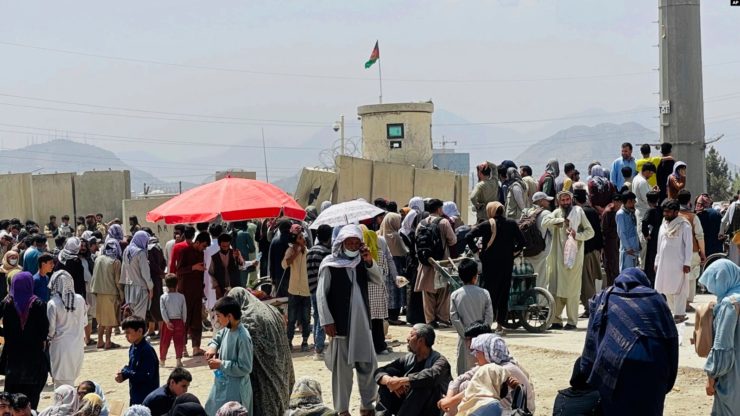
The dawn of the 21st century brought with it the decline of the US-led unipolar world order. For the first two decades, the United States demonstrated its brutal military might to rival states and non-state actors. The US-led War on Terror was one of its violent operations in the developing world. This war negatively affected the lives of the people of Afghanistan. Moreover, the US presence in Afghanistan has been a source of regional instability and a perennial source of discontent between the US, and the two Eastern powers, Russia and China. The latter two have been allies for decades. The growing geopolitical rivalry between the US and Russia has further bolstered their relationship. The recent confrontation between the Western and Eastern powers in the Indo-Pacific region and Ukraine has increased the tensions between the two sides, impacting the geopolitical dynamics of the South Asian region in particular.
Due to ever-expanding US violence and its violations of International Law, Russia, and China are pursuing a parallel regional strategy to reshape regional geopolitics by developing novel economic networks and alliances independent of Western influence. After the US withdrawal from Afghanistan, a vacuum was created. Since then, the Taliban government in Afghanistan has been seeking global recognition. However, the United States remains the biggest impediment to this goal of the Taliban government. The US-led Western institutions seek to enforce their policies through sanctions on Afghanistan, citing human rights violations in the country. However, the US and its Western allies are in oblivion to the fact that their sanctions are the key source of the humanitarian crisis in Afghanistan. Many international institutions have reported that the menace of an imminent humanitarian crisis looms large over the country. Afghanistan’s assets are also frozen, and its economy is in shambles due to these sanctions. The covert rationale behind imposing sanctions on Afghanistan seems to destabilize the region through extremism and terrorism emanating from the humanitarian crisis in the country. This posits the duplicitous policies of the West regarding their concern for humanity.
Amidst all this, Russia and China are rising as the new inclusive superpowers of the world. The two countries are successfully filling the vacuum created by the US withdrawal. They are using this premature exit to expose the incompetence and frailty of the US hegemony. Political, economic, and diplomatic engagement at the international level is imperative for the Taliban government in Kabul. However, this is impossible for them without international recognition as the legitimate government in Afghanistan. The Taliban government is not ready to accept the dictations of the Western nations and seek to rule the country as per their own ideology. The Capitalist world has no acceptance of any other model of governance. Nonetheless, Russia and China, unitedly, are challenging this global system.
Both the Eastern powers are expanding their regional and global outreach. The main aspect of their foreign policy outlook is to make alliances with the developing and under-developed nations around the world. Russia and China, both, have demonstrated their willingness to follow an inclusive foreign policy towards different nations of the world without intervening in their domestic issues. The expansion of BRICS is a significant demonstration of this policy. Both states have shown positive gestures to the Taliban government in Afghanistan to avoid the imminent humanitarian crisis in the country, whose impacts can spill over to the whole region. China has already made significant investments in Afghanistan. Due to a $49 million Chinese investment, Afghanistan’s oil production has surged to 11000 metric tons. China is also working on mineral projects in Afghanistan, which is mutually beneficial for both countries. Recently, the Russian Press Secretary, Dmitry Peskov, stated that his country was mulling removing the Afghan Taliban from the list of terrorist groups. He further emphasized that the Taliban are the de facto authority in the country, and therefore, it is mandatory to engage with them to stabilize the country. Since the US withdrawal from Afghanistan, Russia has already increased its ties with the incumbent Afghan government to avoid a humanitarian crisis in the country and to stabilize the region.
In pursuit of this policy, the Russian government is bolstering its trade ties with Afghanistan. Russian exports to Afghanistan, in 2021, were worth 79.2 million USD. This trade has been increasing over the years. In 2022, Afghanistan also signed an agreement with the Russian government for the import of different amenities. Stability in Afghanistan is mandatory for the smooth rise of Russia and China on the global stage. Afghanistan is the weakest link in China’s Belt and Road Initiative (BRI). Moreover, a stable Afghanistan is also the only solution to curtail terrorist attacks on Chinese and Russian interests in the region. IS-K, which was involved in the recent Moscow attacks, has strong hideouts in Afghanistan. Therefore, the regional government needs to cooperate with the incumbent Afghan government to effectively deal with such terrorist groups operating from Afghanistan. Abandoning Afghanistan will not only spark a humanitarian crisis in Afghanistan but will also have regional implications. Inclusive policies of Russia and China are vital to counter both these threats.
Taut Bataut – is a researcher and writer that publishes on South Asian geopolitics, exclusively for the online magazine “New Eastern Outlook”.